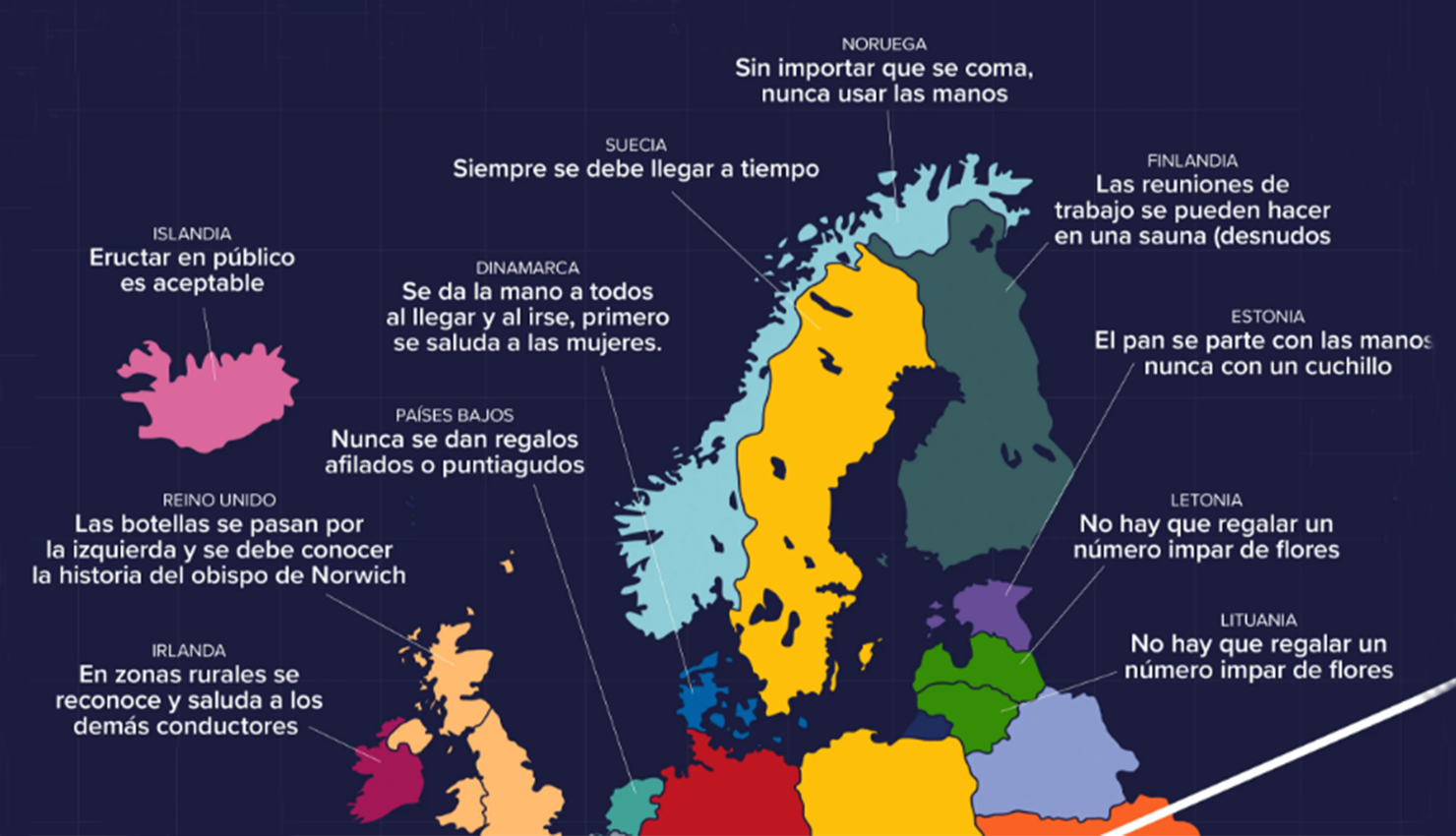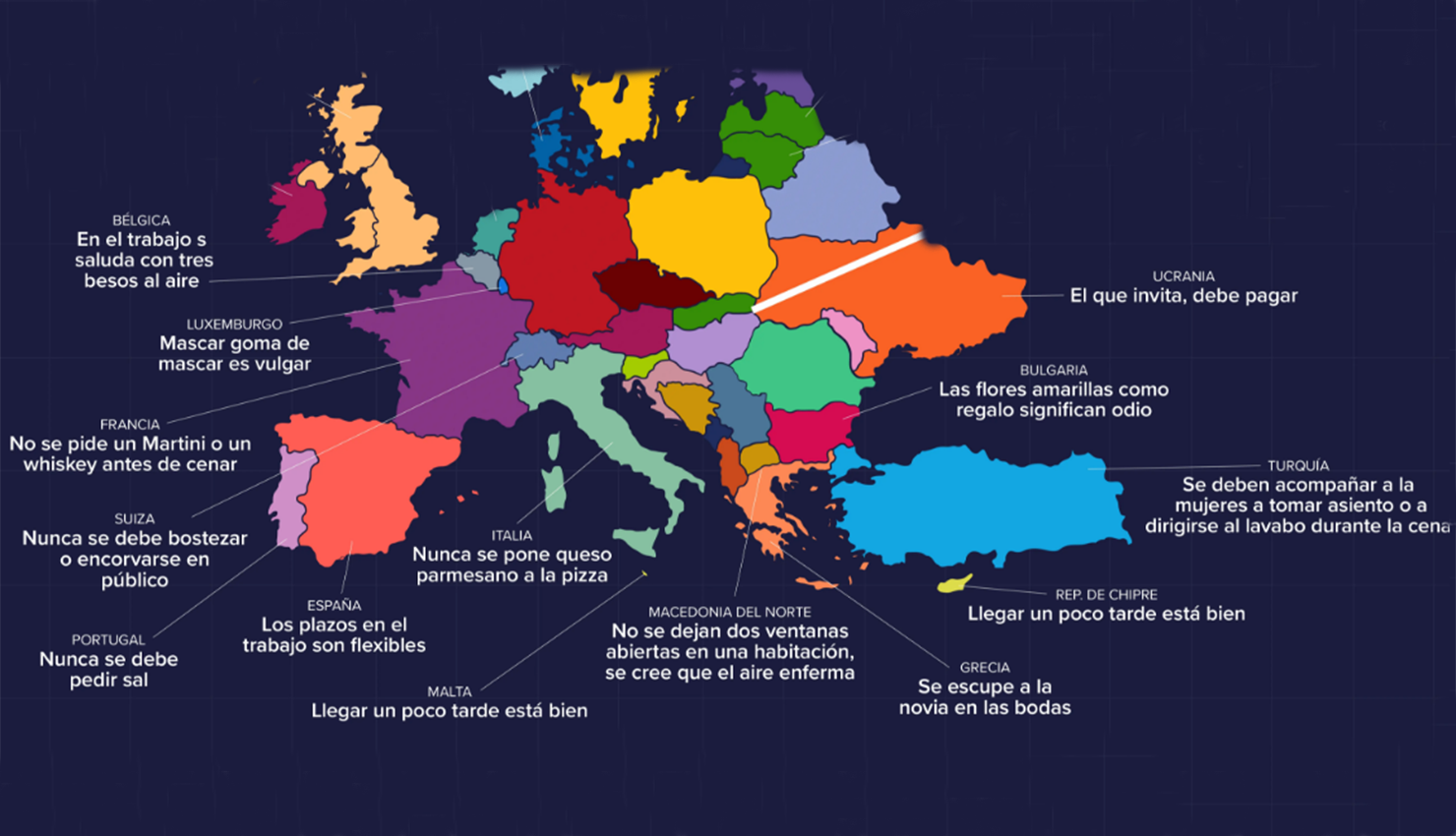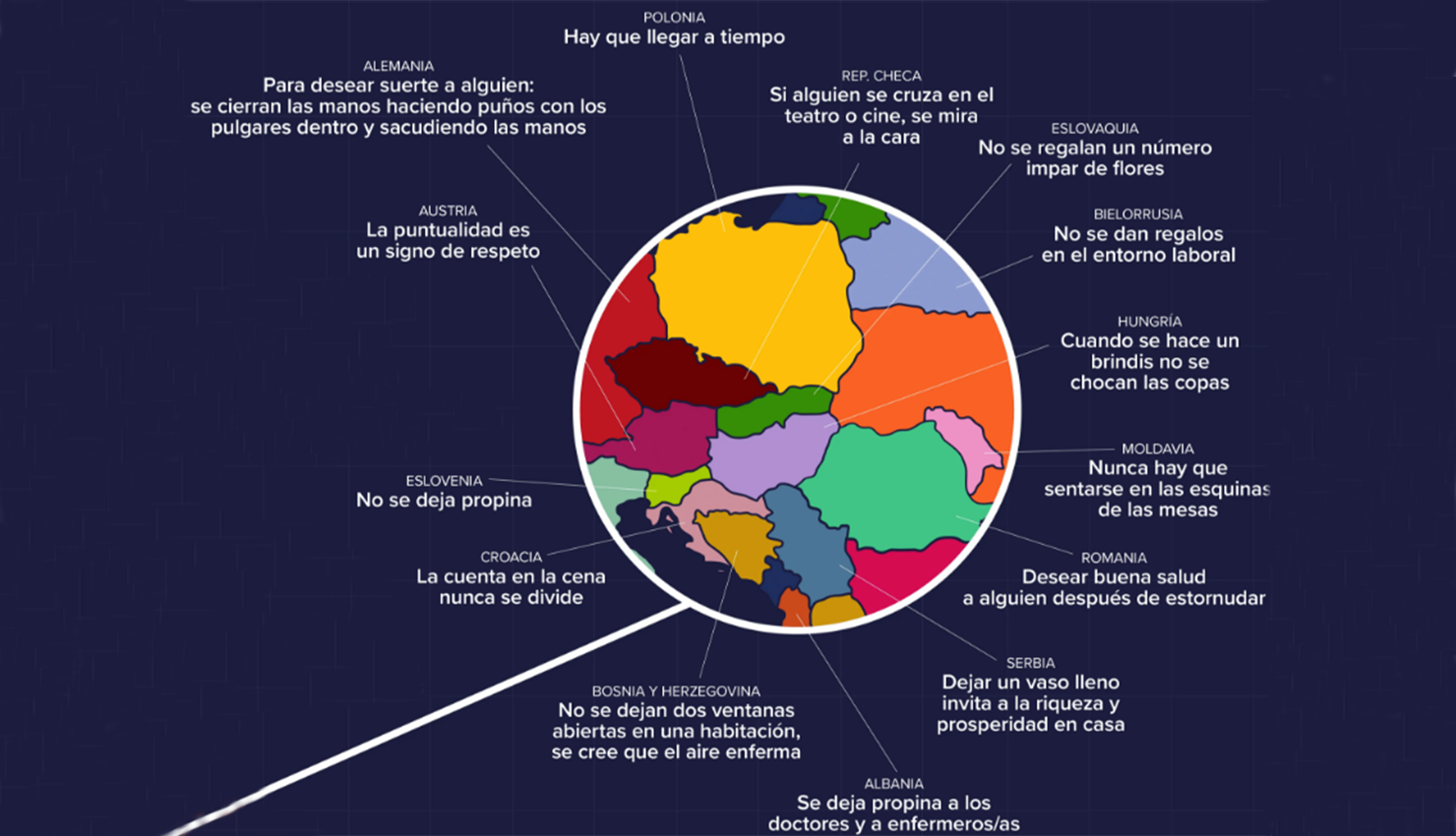When we venture into Europe, we find a mosaic of cultures, customs and traditions that may surprise us. No matter how close one country may be to another, it should not be taken for granted that they are alike, as they can be very different.
So there’s nothing better than preparing your suitcase to discover Europe first-hand, and pto be a little more prepared, it’s good to know the ins and outs of the place. Remitly has embarked on a global investigation to uncover the world’s most unusual cultural labels. A useful guide to navigating social niceties and establishing deeper connections in destinations.

Peculiar traditions in Northern Europe
Throughout the study, the most frequently mentioned trends and customs are good manners when presenting oneself, how to eat properly or the superstitions themselves. These beliefs may seem absurd to know, but it is better not to challenge them, just in case. For example, in northern countries such as Latvia, Lithuania and Slovakia they prefer not to give flowers oddly, while in the United Kingdom, you pass the bottle of wine on the left, and if it takes too long you ask if you know Bishop Norwich. The man was notorious for not being able to hold his liquor, and would often fall asleep with the bottle in his hand.

To conduct this research, Remitly used Google and country-specific keywords to explore cultural particularities in 165 countries around the world.
The use of hands at meals is also mentioned, mwhile in Norway they do not feel comfortable taking food with their hands, in Estonia they do not see the need to use cutlery to cut something as simple as bread. These curiosities may not come as much of a surprise, but in some places there are very peculiar customs. In Island, burping in public is acceptable, and in Finland business meetings can be held quietly in a sauna.
Southern customs and beliefs
A clear difference between northern and southern countries is the custom of arriving or not arriving late to places. In countries like Malta, Cyprus or even Spain, a late lunch, a siesta in the middle of the day or being late for a family appointment is something that is not too much reproached. But in Sweden, Austria or Poland you should always arrive on time, because waiting too long is disrespectful. At gastronomic level it is curious to see that in Portugalit is impolite to ask for salt, as the cooks may feel offended by suggesting that they have not prepared the dishes properly. It is also seen in Italy, but instead of salt, it is parmesan. You should never order parmesan for pizza, it is a disgrace to them.

The different countries of the continent reflect the great variety of culture on the continent.
In countries such as the United States, tipping is a regular feature in restaurants, but in Albania it is customary to leave tips in hospitals, for the medical staff. Meanwhile, in Slovenia they prefer to omit the extra money, and if dining in a group, in Croatia you should never split the bill. In the south of the country there are also traditions to avoid bad luck: in Greece they bless newlyweds by spitting on the bride, and in Serbia they prefer to leave a glass full of water at home to attract prosperity.Bosnia and Northern Macedonia never leave two windows open in the same room.
Curiosities when giving gifts
The gesture of giving gifts to your loved ones is steeped in tradition. For example, on Valentine’s Day it is customary to give red roses, but if you decide to visit Bulgaria, giving yellow flowers is totally forbidden, as the other person will think you hate them deeply. Similarly, in the Netherlands you have to be careful with the gift, as they believe that if you give someone something sharp or pointed, it can be bad luck. On many occasions, when it is a colleague’s birthday, it is customary to give a gift, as they do in Japan, but in Belarus it is frowned upon to give a gift during the working day.

Within the results we see the different behaviours between the northern and southern populations. And how something common in our country is completely strange when crossing the border.
Eastern European countries have curious traditions, for example, in Hungary they do not clink glasses when toasting, and in Moldova they do not sit at the corners of tables, as it is bad luck. The figure of the woman is also represented in Turkey, who is accompanied to take a seat at dinner, and in Ukraine whoever invites must pay. And if we look at central Europe, bad habits are not accepted. In Luxembourg chewing gum is vulgar, and in Switzerland you should never yawn in public.
Europe is a continent where beliefs and superstitions are manifested in a variety of ways in everyday life. From avoiding certain colours because they bring bad luck, to expressing wishes for good fortune by closing one’s hands in Germany, customs that reflect the richness of the culture that surrounds us.
Images provided by the brand mentioned




